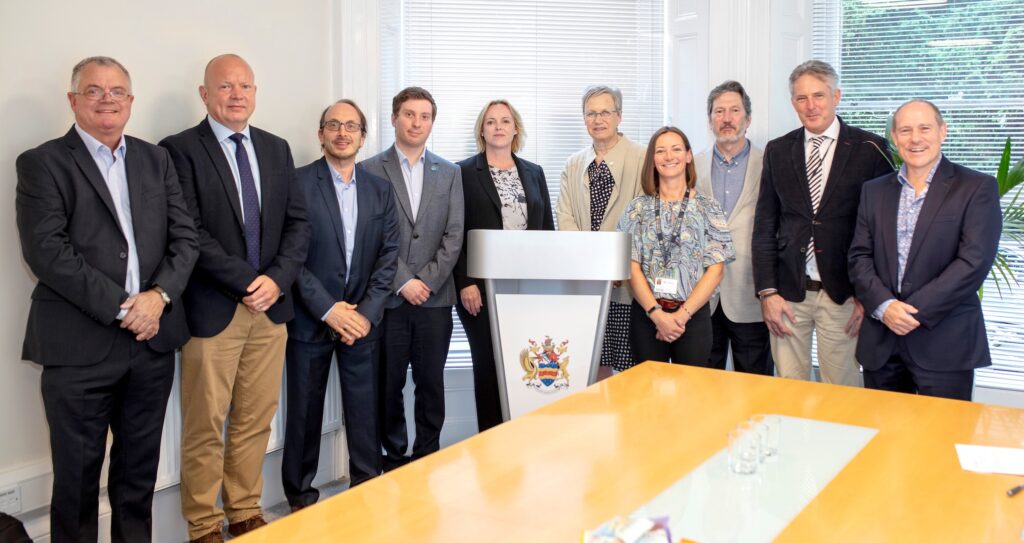University of Plymouth sets sights on marine cyber security
 Signing of a memorandum of understanding between the University of Plymouth and BMT
Signing of a memorandum of understanding between the University of Plymouth and BMT
BMT, an international multi-disciplinary engineering and design consultancy, has signed a memorandum of understanding (MoU) with the University of Plymouth to jointly research ship design and cyber security in the maritime sector. BMT has a growing cyber security team and recognises the unique challenges created in the maritime domain.
The new agreement will look at harnessing the capabilities of the university’s recently opened £3.2 million Cyber-SHIP Lab. This facility is dedicated to simulating and understanding maritime cyber threats and facilitating future secure maritime operations through cyber resilience research, tools and training. It forms part of the university’s Marine Navigation Centre, which includes a physical ship’s bridge used to simulate attacks and test equipment.
BMT was a founding industry supporter of the Cyber-SHIP Lab when it was launched in 2019, based on the belief that through the development of these new tools and lab, the UK can become a leading power in maritime cyber security.

Commenting on the MoU, Jake Rigby, research and development lead at BMT, says: “BMT is delighted to be working with the University of Plymouth in helping the UK drive the highest possible standards in maritime security. With this knowledge and experience in place, the UK can then offer the benefits of the insights, operational practices and training to the global shipping and marine community. Through combining our expertise and our knowledge, we are confident great strides will be made in enhancing security and cyber protection across maritime.”
Professor Kevin Jones, executive dean of science and engineering at the university and principal investigator on the Cyber-SHIP Lab project, adds: “With our ever-increasing dependence on the global maritime sector, ensuring ships and port operations are cyber secure has never been more critical. Advances in cyber technology, and the emergence of new threats, mean this is a constantly evolving area that needs an innovative and joined-up approach. The partnership between the university and BMT is a perfect example of that, uniting our collective expertise in both identifying potential issues and solutions and finding the means for them to be applied in maritime engineering and design.”
The MoU was signed by Professor Judith Petts CBE, vice-chancellor of the University of Plymouth, and Sarah Kenny, CEO of BMT, and will kickstart a range of collaboration opportunities from student engagement and employee development to collaborative research and joint consultancy.












